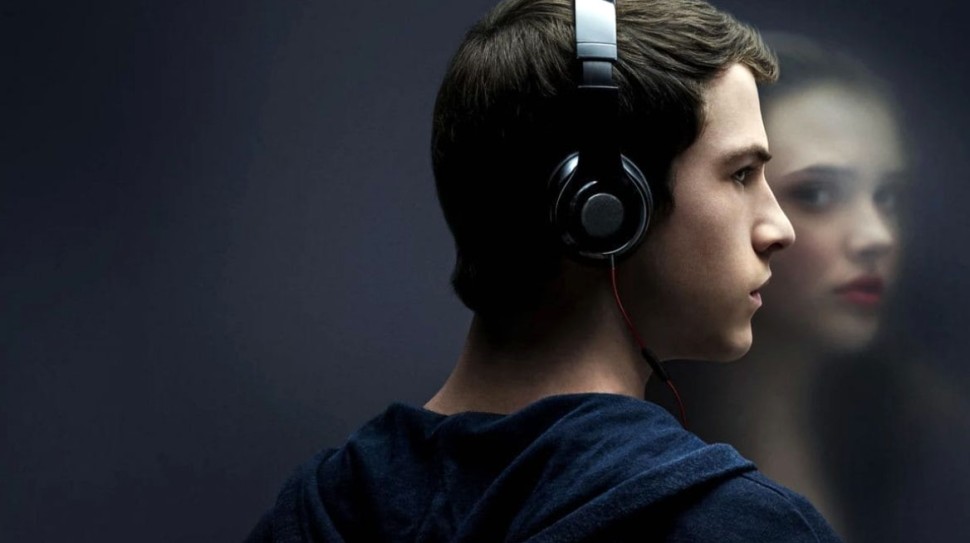A new study of more than 5,000 teens, young adults and parents in four regions of the world found that watching the series “13 Reasons Why” prompted teen and parent conversations about bullying, suicide and mental health.
The fictional series about a high school student named Hannah Baker who takes her own life -- leaving behind audio cassette recordings documenting the 13 reasons why she decided to end her life -- launched globally on Netflix in March 2017. While there were many positive reviews, the series also received a great deal of criticism in response to its treatment of sensitive subjects. The graphic nature of scenes depicting suicide and sexual assault sparked conversations worldwide about the appropriateness of the content for young viewers.
“We decided to quantitatively study ‘13 Reasons Why’ to better understand how today’s adolescents are engaging and reacting toward media content that deals with issues they are facing,” said Ellen Wartella, the director of the Center on Media and Human Development at Northwestern University and an expert in the field of children and media. “Our data suggests that teens worldwide report that the series accurately depicts their lives.
“Most importantly, we learned that the show prompted conversations between parents and adolescents about difficult issues they are facing,” said Wartella, who also is a professor of psychology, human development and social policy, and medical social sciences and chair of the department of communication studies in Northwestern’s School of Communication. “Second, the series led adolescents to show more empathy for peers, and third, the survey indicated that parents and adolescents want more resources.”
The study, Exploring How Teens and Parents Responded to “13 Reasons Why, which was commissioned by Netflix and approved by Northwestern’s Institutional Review Board, surveyed adolescents and young adults, ages 13 to 22, and parents in the U.S., U.K., Brazil, Australia and New Zealand, to ascertain how audiences perceived, related to and were influenced by the popular Netflix series.
Survey results suggest that watching the series served as an educational tool for young people, promoted parent/child conversations and inspired more compassion among teen and adolescent viewers.
Key U.S. Findings:
- 80 percent of adolescent and young-adult viewers reported that people their age deal with issues similar to those in the series, and 72 percent said it was beneficial for people their age to watch
- More than three-quarters of teen viewers reported the show informed them someone might be suffering from depression even if they don’t see the signs
- The majority of adolescent and young-adult viewers said watching the series helped them better understand depression, suicide, bullying and sexual assault; in addition, teen viewers reported seeking information about those topics
- 67 percent of adolescent and young-adult viewers felt the intensity of the show was appropriate for them
- Nearly 80 percent of adolescent and young-adult viewers reported that watching the show helped them understand their actions can have an impact on others; more than half of teen viewers (51 percent) reached out to apologize to someone for how they had treated them; and more than two-thirds were more motivated to help someone who was depressed, bullied or sexually assaulted
- Among parents who watched the show and discussed it with their child, 56 percent reported that the show made it easier for them to have conversations about tough topics with their children; a majority also said the show prompted them to communicate with their children about difficult topics including depression, suicide and sexual assault
- The majority (70 percent) of parents who watched “Beyond the Reasons” wanted more resources, including having mental health professionals provide resources at the end of difficult episodes (62 percent) and the cast coming out of character to provide resources at the end of specific episodes (65 percent)
- Younger teens and teens with higher levels of social anxiety felt more comfortable talking about these difficult topics with parents, peers and other supportive adults after watching “13 Reasons Why”
Our data suggests that teens worldwide report that the series accurately depicts their lives.”
Center on Media and Human Development at Northwestern
“We have been surprised by these results,” said Alexis Lauricella, co-author of the report and associate director of Northwestern’s Center on Media and Human Development. “Adolescents reported that the show made them think about how their own actions impact others, and some even apologized to others for how they treated them. Given the highly egocentric stage adolescents are in, it was powerful to see adolescents thinking about how others are feeling.
“While many adolescents and young adults had positive attitudes toward the show, it is important to note that not all individuals had the same feelings about show," Lauricella added.
Adolescents and teens suffering from high social anxiety, for example, were more likely to agree that the intensity of the show was appropriate for them. However, these same teens also were more inclined to report that the sexual assault scenes were too intense.
“It may be that only a few individuals disagree or are different from the norm based on individual characteristics, but it is important that we consider those individuals who fall outside of the majority when viewing this type of program,” said Drew Cingel, research collaborator at the Center on Media and Human Development and an assistant professor at University of California, Davis.
Cingel added, “But the results for the majority of teens and young adults are promising. These findings suggest that ‘tough topic’ programs like '13 Reasons Why' may be able to help adolescents talk about these stressors in their lives.”
The work of the Center on Media and Human Development studies the role of media and technology in children’s development, with studies ranging from Teens and Health and Technology: How Teens Use Online Tools to Access Health Information to Food Marketing and Childhood Obesity. The center receives funding from the National Science Foundation as well as private funders and industry partners. Studies are independently designed and executed.


